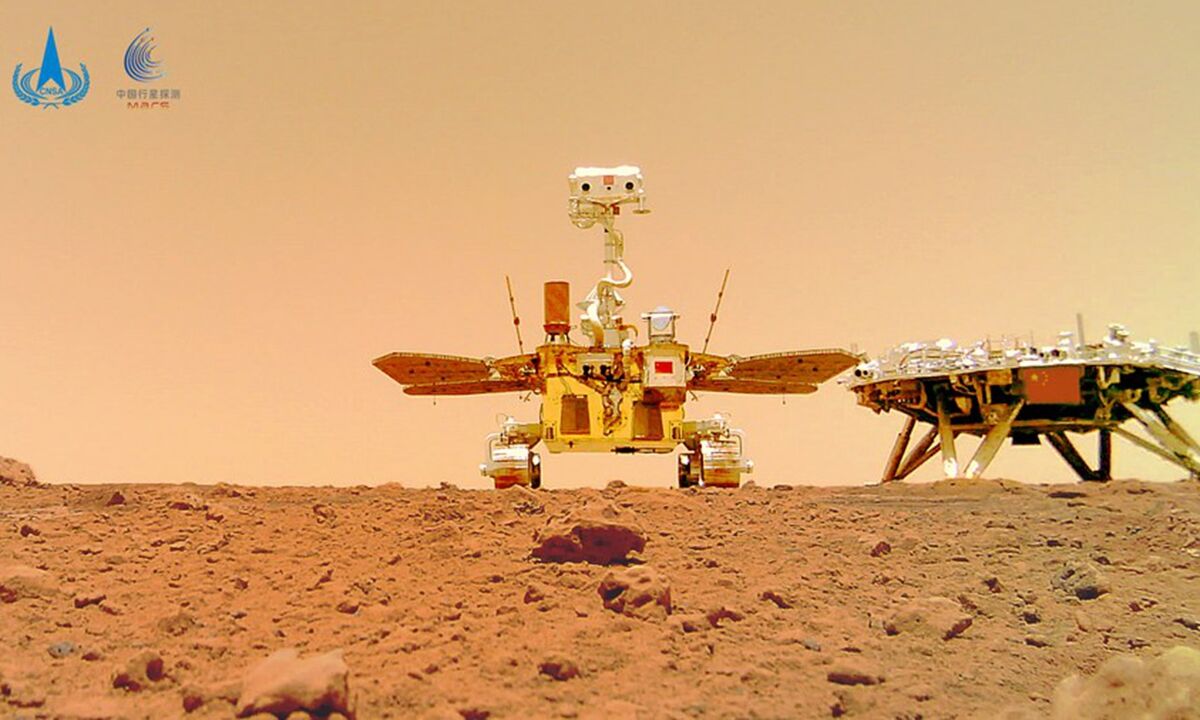Chinese researchers discover evidence of ancient ocean on Mars

Chinese researchers have uncovered direct evidence of an ancient ocean on Mars’s northern plains, according to a team from the China University of Geosciences in Wuhan. The discovery, recently published in the journal National Science Review, has the potential to further solidify our understanding of the Red Planet’s geological history.
Led by Xiao Long, a professor at the China University of Geosciences, the research team analysed scientific data gathered by the multispectral camera onboard the Mars rover Zhurong. For the first time in history, they found petrological evidence of marine sedimentary rocks on the planet’s surface. Xiao explained that upon examining these images, the researchers noted that the bedding structures of these exposed rocks significantly differed from the common Martian volcanic rocks and the bedding structures formed by aeolian sands.
Furthermore, Xiao highlighted that the bidirectional flow characteristics indicated by the aforementioned bedding structures were consistent with those of low-energy tidal flows found in Earth’s shallow shore-ocean environments. As a result, this new evidence directly supports the existence of an ancient ocean on Mars in the past.
This groundbreaking discovery by the Chinese researchers sheds new light on our understanding of Mars’ geological past and adds to the growing knowledge pool of the Red Planet’s potential for water in its earlier epochs. Despite prior evidence suggesting a substantial amount of liquid on Mars in its early history, the claims have been a matter of ongoing scientific debate due to the lack of analysis from the location.
As Mars continues to be a focus of international collaboration and exploration, these exciting discoveries made by China’s Zhurong rover and the research team at the China University of Geosciences in Wuhan undoubtedly contribute to advancing our understanding of the enigmatic planet and its past environmental conditions.
Latest Thailand News
Follow The Thaiger on Google News:
























